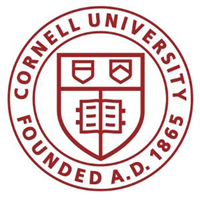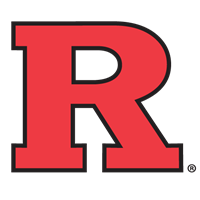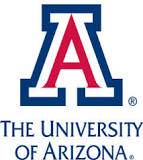What do they do?
Resolve disputes between workers and managers, negotiate collective bargaining agreements, or coordinate grievance procedures to handle employee complaints.
Also known as:
Arbitrator, Business Agent, Business Representative, Grievance Manager, Labor Relations Specialist, Labor Specialist
-
-8.8%
Change
Ranks #51 in job growth rate350Job Openings
Ranks #9 in net job growth
-
Cornell University
Ithaca, NY
-
Rutgers University-New Brunswick
New Brunswick, NJ
-
University of Iowa
Iowa City, IA
-
University of Arizona
Tucson, AZ
-
Florida International University
Miami, FL
Looking for colleges that offer a specific major? Use the College Match Tool to find your best-matched schools and discover your estimated Net Price!
- Doctorate or Professional Degree (2%)
- Master's degree (18%)
- Bachelor's degree (45%)
- Associate's degree (8%)
- Some college, no degree (16%)
- High school diploma equivalent (9%)
- Less than high school diploma (1%)
Most Popular Majors that prepare Labor Relations Specialists
-
#1
-
Degrees Granted
6,498
-
Female Students
4,737
-
Male Students
1,761
-
Median Starting Salary
$40,400
-
-
#2
-
Degrees Granted
915
-
Female Students
494
-
Male Students
421
-
Median Starting Salary
$40,400
-
-
#3
-
Degrees Granted
57
-
Female Students
41
-
Male Students
16
-
Median Starting Salary
$40,400
-
-
#4
-
Degrees Granted
2
-
Female Students
1
-
Male Students
1
-
Median Starting Salary
$47,533
-
People in this career often have these skills:
- Active Listening - Giving full attention to what other people are saying, taking time to understand the points being made, asking questions as appropriate, and not interrupting at inappropriate times.
- Speaking - Talking to others to convey information effectively.
- Negotiation - Bringing others together and trying to reconcile differences.
- Reading Comprehension - Understanding written sentences and paragraphs in work-related documents.
- Writing - Communicating effectively in writing as appropriate for the needs of the audience.
- Critical Thinking - Using logic and reasoning to identify the strengths and weaknesses of alternative solutions, conclusions, or approaches to problems.
- Persuasion - Persuading others to change their minds or behavior.
- Social Perceptiveness - Being aware of others' reactions and understanding why they react as they do.
- Complex Problem Solving - Identifying complex problems and reviewing related information to develop and evaluate options and implement solutions.
- Judgment and Decision Making - Considering the relative costs and benefits of potential actions to choose the most appropriate one.
- Active Learning - Understanding the implications of new information for both current and future problem-solving and decision-making.
- Monitoring - Monitoring/Assessing performance of yourself, other individuals, or organizations to make improvements or take corrective action.
- Coordination - Adjusting actions in relation to others' actions.
- Service Orientation - Actively looking for ways to help people.
- Time Management - Managing one's own time and the time of others.
People in this career often know a lot about:
- Personnel and Human Resources - Knowledge of principles and procedures for personnel recruitment, selection, training, compensation and benefits, labor relations and negotiation, and personnel information systems.
- English Language - Knowledge of the structure and content of the English language including the meaning and spelling of words, rules of composition, and grammar.
- Law and Government - Knowledge of laws, legal codes, court procedures, precedents, government regulations, executive orders, agency rules, and the democratic political process.
People in this career often have talent in:
- Oral Expression - The ability to communicate information and ideas in speaking so others will understand.
- Oral Comprehension - The ability to listen to and understand information and ideas presented through spoken words and sentences.
- Written Comprehension - The ability to read and understand information and ideas presented in writing.
- Written Expression - The ability to communicate information and ideas in writing so others will understand.
- Problem Sensitivity - The ability to tell when something is wrong or is likely to go wrong. It does not involve solving the problem, only recognizing that there is a problem.
- Deductive Reasoning - The ability to apply general rules to specific problems to produce answers that make sense.
- Inductive Reasoning - The ability to combine pieces of information to form general rules or conclusions (includes finding a relationship among seemingly unrelated events).
- Speech Clarity - The ability to speak clearly so others can understand you.
- Speech Recognition - The ability to identify and understand the speech of another person.
- Fluency of Ideas - The ability to come up with a number of ideas about a topic (the number of ideas is important, not their quality, correctness, or creativity).
- Originality - The ability to come up with unusual or clever ideas about a given topic or situation, or to develop creative ways to solve a problem.
- Near Vision - The ability to see details at close range (within a few feet of the observer).
- Information Ordering - The ability to arrange things or actions in a certain order or pattern according to a specific rule or set of rules (e.g., patterns of numbers, letters, words, pictures, mathematical operations).
People in this career often do these activities:
- Arrange collective bargaining agreements.
- Evaluate personnel practices to ensure adherence to regulations.
- Collect evidence for legal proceedings.
- Negotiate agreements to resolve disputes.
- Assess risks to business operations.
- Update knowledge of legal or regulatory environments.
- Measure effectiveness of business strategies or practices.
- Advise others on human resources topics.
- Organize special events.
- Train personnel on managerial topics.
- Testify at legal or legislative proceedings.
- Establish organizational guidelines or policies.
- Establish business management methods.
- Present business-related information to audiences.
- Prepare regulatory or compliance documentation.
This page includes data from:

 Occupation statistics: USDOL U.S. Bureau of Labor Statistics Occupational Employment Statistics
Occupation statistics: USDOL U.S. Bureau of Labor Statistics Occupational Employment Statistics
 Videos: CareerOneStop, USDOL/ETA and the Minnesota Department of Employment & Economic Development
Videos: CareerOneStop, USDOL/ETA and the Minnesota Department of Employment & Economic Development









